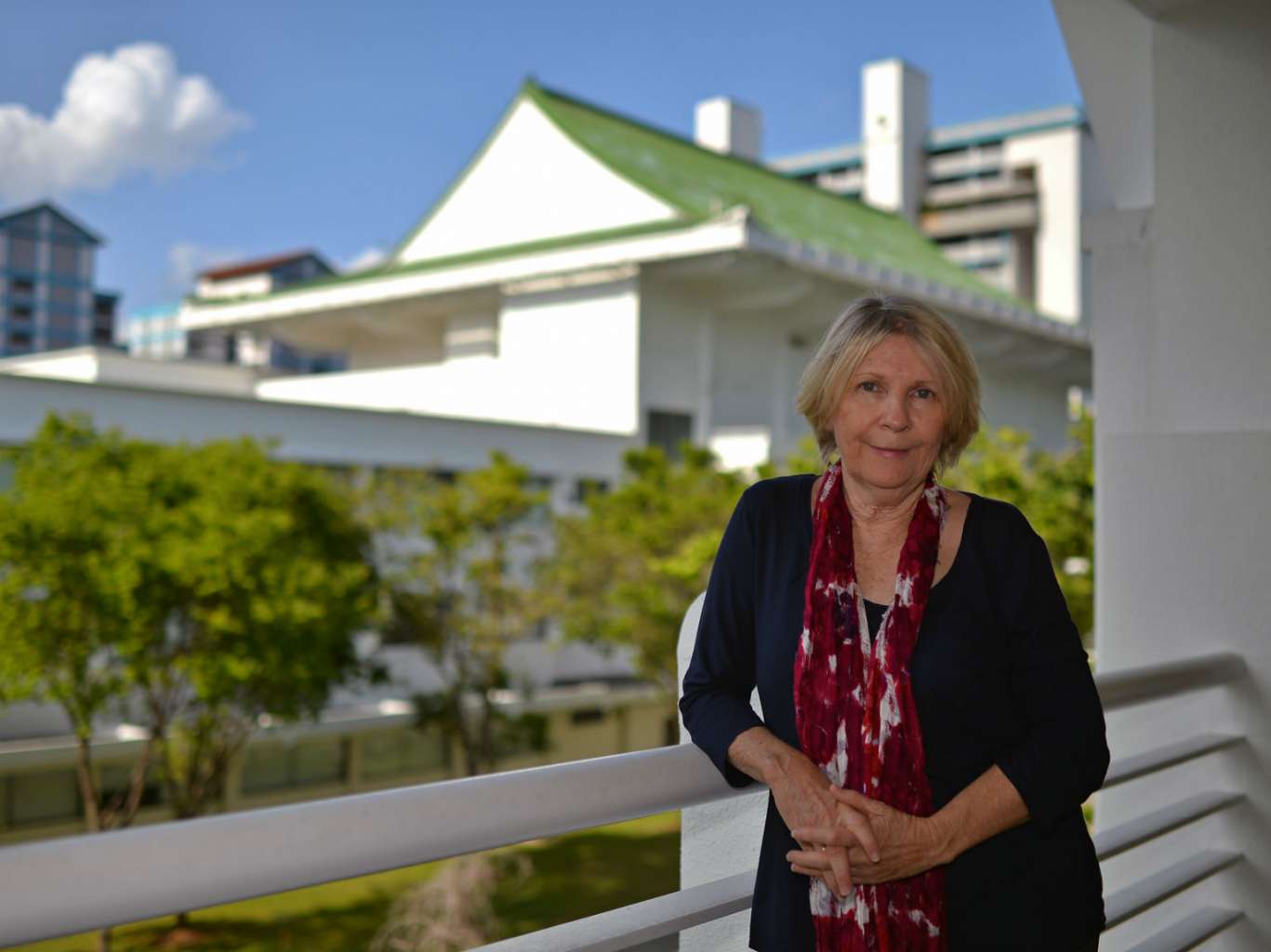SPONSORED CONTENT
Early childhood education: Importance of learning through play
In the first of a five-part series, Douglas Chew learns from an early childhood and education lecturer at JCU Singapore that child’s play is a serious matter for childhood educators.
Sign up now: Get tips on how to help your child succeed

Early childhood educators must comprehend and know how to implement current theories of learning and teaching to optimise children’s development, says Dr Anderson.
PHOTO: CHONG JUN LIANG

Leave a child alone or with a couple of others and almost inevitably, they will start to play. "Stop playing" must be one of the most common phrases used by parents to divert their children to what they believe to be more important or meaningful activities such as studying.
However, parents and other caregivers for the young should not underestimate the importance of play. Indeed, a play-based approach to all learning in early childhood education has gained traction as an appropriate and effective way to teach young children.
"Play engages children's attention in authentic, hands-on tasks. It offers choice and a challenge that is within a child's capacity to master in a stress-free environment," says Dr Robyn Anderson, a lecturer in Early Childhood and Education at JCU Singapore.
Some lessons learnt on the playground and in early education settings - such as pre-schools and kindergartens - include sharing, playing fair, not hitting one another, putting things back where they were found and cleaning up one's own mess. Such social skills, positive behaviours and values can help a person through life.
"During play, ideas and skills become meaningful tools that are practised. Concepts are understood and qualities are developed that are the same required to succeed in school and life, such as thinking, problem solving and communicating," she adds.
"Children who enter primary school with strong oral communication skills, developed through play, are confident, able to make friends, persistent and creative in completing tasks and solving problems, and excited to learn and thus have pathways set for academic success."
Countries with successful long-term educational outcomes such as Finland and Canada have employed the play-based approach.
In its curriculum framework for kindergartens, the Ministry of Education talks about purposeful play where teachers intentionally plan the play experiences and organise the environment to enhance learning. Prime Minister Lee Hsien Loong, in his National Day Rally speech in 2012, said: "It is good for young children to play and to learn through play."
Research by Canadian researchers Mustard, McCain and Shanker has shown that between birth and the age of three, positive experiences, such as those gained through play, are crucial for developing neural pathways in the young child's brain.
"The early years, from birth to age eight years, lay the foundation for all learning and development that will take place over a child's lifetime," says Dr Anderson. "High quality early childhood education can play a critical role during this important period of development."
Given how crucial early childhood years are to children's development, some careers in early childhood education will require degrees.
"To optimise children's development, teachers need to understand and know how to implement current theories of learning and teaching and child development. A degree in early childhood development provides early childhood educators with the knowledge and expertise to implement quality programmes and optimise children's development," says Dr Anderson.
Early childhood education is a specialised field within education. JCU Singapore offers a Bachelor of Education degree in early childhood education, which can be fast-tracked and completed in three years at its campus at Sims Drive. At JCU's main campus in Australia, the degree is a four-year programme.
Students will learn psychology, cultural diversity and how to teach language, mathematics, science, humanities and the arts, health and physical education. There is also a subject on inclusive education for children with special needs.
In addition to classroom learning, students are required to spend a minimum of 100 days in an early childhood education setting. JCU has collaborated with high quality schools and early childhood education providers in Singapore, elsewhere in Asia and Australia, to allow its students to put theory into practice during their internships. Students undertaking more than 40 days of professional experience in Australia will gain automatic registration with the Queensland College of Teachers.
Graduates from the programme have found employment teaching at pre-schools, kindergartens and the lower levels in primary schools and international schools. Those with more experience can subsequently develop their own pre-schools, kindergartens or early learning centres or serve as the head of such centres.
Those thinking of taking JCU's early childhood education degree should have enthusiasm and passion to work with young children. Other qualities aspiring early childhood educators should possess include good communication skills, patience and an understanding of diverse personalities, learning styles and cultural differences in children.
Being creative in art, music and drama can be advantageous, since creative activities, similar to play, can spark in young children a desire to learn and have fun while they are at it.
Check out JCU Singapore's Open House on May 14. Go to www.jcu.edu.sg/openhouse to sign up.


